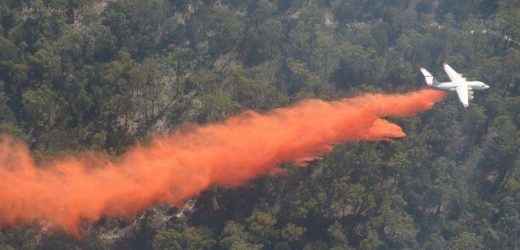Victoria’s aviation firefighting agencies are being urged to clean up a negative culture within their ranks, with some staff accused of running a boys’ club and bullying colleagues, even during emergency situations.
An external investigation was undertaken into the state’s aviation firefighting units after years of bullying complaints against several employees and a high turnover of managerial staff –10 managers in eight years – allegedly led to a poor workplace culture.
An external investigation into the state’s aviation firefighting unit has uncovered a poor workplace culture. Credit:
Some staff have been accused of bullying and intimidating pilots to carry out unsafe tasks, while whistleblowers say they are disappointed no action has been taken against some of those employees.
“They are protected at all costs,” said one whistleblower, who asked to remain anonymous for fear of reprisal.
Whistleblowers said management had still not effectively addressed issues raised in the investigation and some staff have continued to act “with impunity and arrogance”.
The external report, titled Safe Landings, was handed to Emergency Management Victoria (EMV) and the Department of Environment, Land, Water and Planning (DELWP) – the agencies primarily responsible for the aviation firefighting unit – in November 2019.
Twenty-seven staff from DELWP, Parks Victoria, EMV, Country Fire Authority, Metropolitan Fire Brigade and some people external from the industry were interviewed for the review, in which a majority said aviation firefighting had a “negative culture and was perceived in negative terms”.
“Based on all of the available interviewee information, it is the reviewer’s assessment that the morale and the workplace culture within aviation firefighting is below average, but there are key areas … where morale is particularly poor,” the report states.
“As the [agencies] are critical components of aviation firefighting, the low morale within these areas has a direct impact on the culture of aviation firefighting overall.”
Between them, the EMV and DELWP manage the air fleet used for emergencies and land management and a 24-hour service, similar to the triple zero line, for aviation fleets.
In a joint statement, the agencies said they had accepted and begun implementing the report recommendations.
“Both Emergency Management Victoria and the Department of Environment, Land, Water and Planning treat all matters of bullying and harassment in the workplace with the utmost importance,” the statement said.
“We strive to create and maintain a safe, respectful and inclusive environment – and we will not hesitate to take action to stamp out inappropriate behaviour. We have accepted and are actively implementing all recommendations in the 2019 Safe Landings report to improve our workplace culture – ensuring we provide a safe and positive place for our people.”
They said there were “currently no formal complaints nor are there any investigations into any employees arising from the Safe Landings 2019 report”.
A majority of the staff interviewed as part of the review had concerns about the behaviour of certain employees in each of the two government departments, describing them as being part of the “boys’ club”, “misogynists”, having a “single point of truth” and “egotistical bullies”.
A number of staff alleged a few individuals from EMV and DELWP caused the most grievance, but expressed low levels of confidence in the organisations’ complaints process. They feared reprisal and said they were not confident a complaint would be handled appropriately if it related to an employee from another agency.
“Concern was also expressed about … [some individuals] believing that they are the decision-makers and ‘white-anting’ decisions they do not like,” the report said.
“Some interviewees from the agencies indicated that pilots had complained to them that they were at times bullied or intimidated by [colleagues] to carry out a process that they considered unsafe.”
Staff said morale was better during an emergency than in a business-as-usual mode, but they conceded a small group of individuals continued bullying their colleagues, even in an emergency. They said ego took precedence over decision-making in some areas, with people indicating they would check who was on duty before making a call – and they often delayed their call until the shift changeover.
”Others referred to the fact that [several employees] to a lesser extent have been behaving in this manner for years and the behaviour has been tolerated by management because of a perception that the system cannot run without them,” the report said.
“There was a clear theme that people are afraid to intervene or speak up because they may then become subject to the same behaviour.”
Catch all the day’s headlines
At the end of each day, we’ll send you the most important breaking news headlines, evening entertainment ideas and a long read to enjoy. Sign up here.
Most Viewed in National
From our partners
Source: Read Full Article



